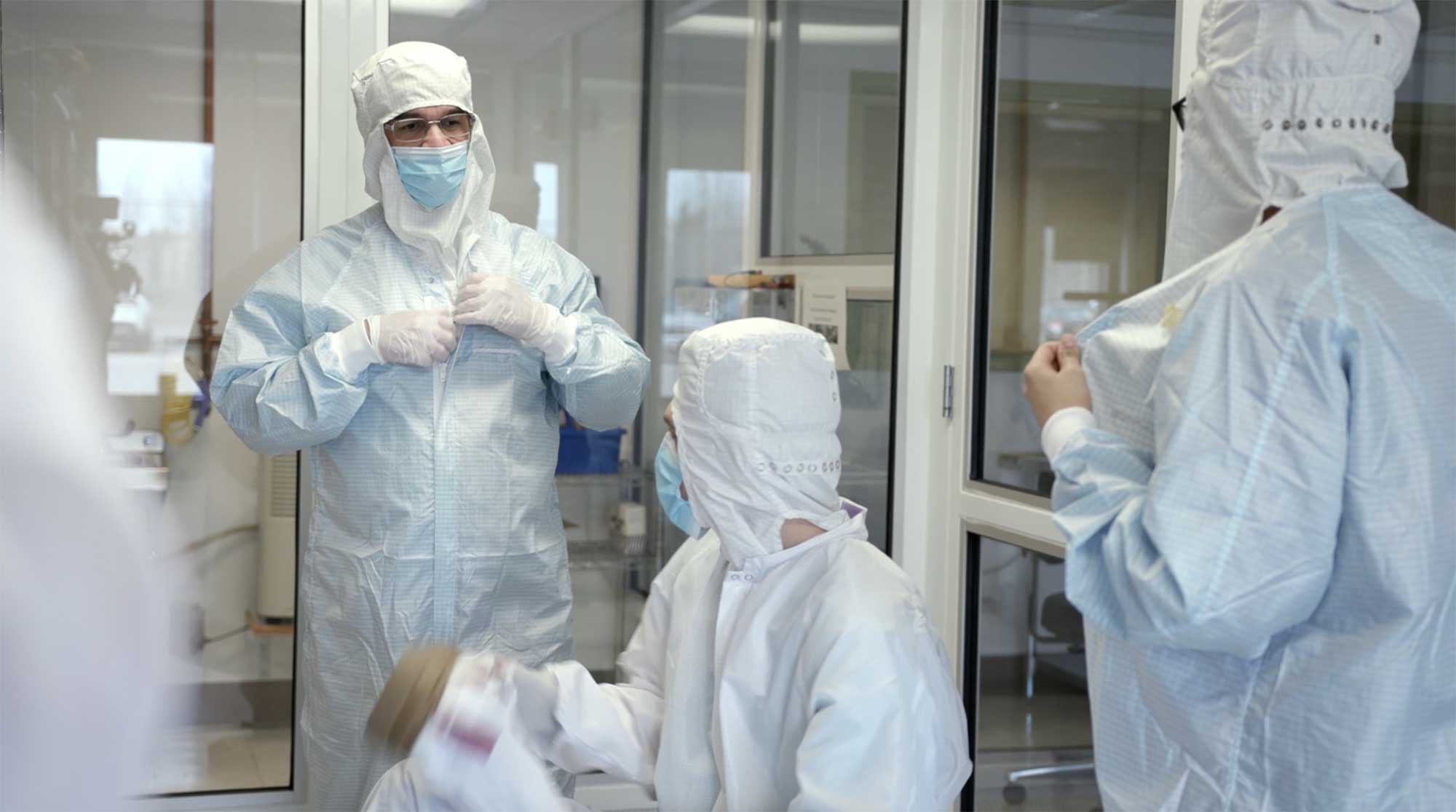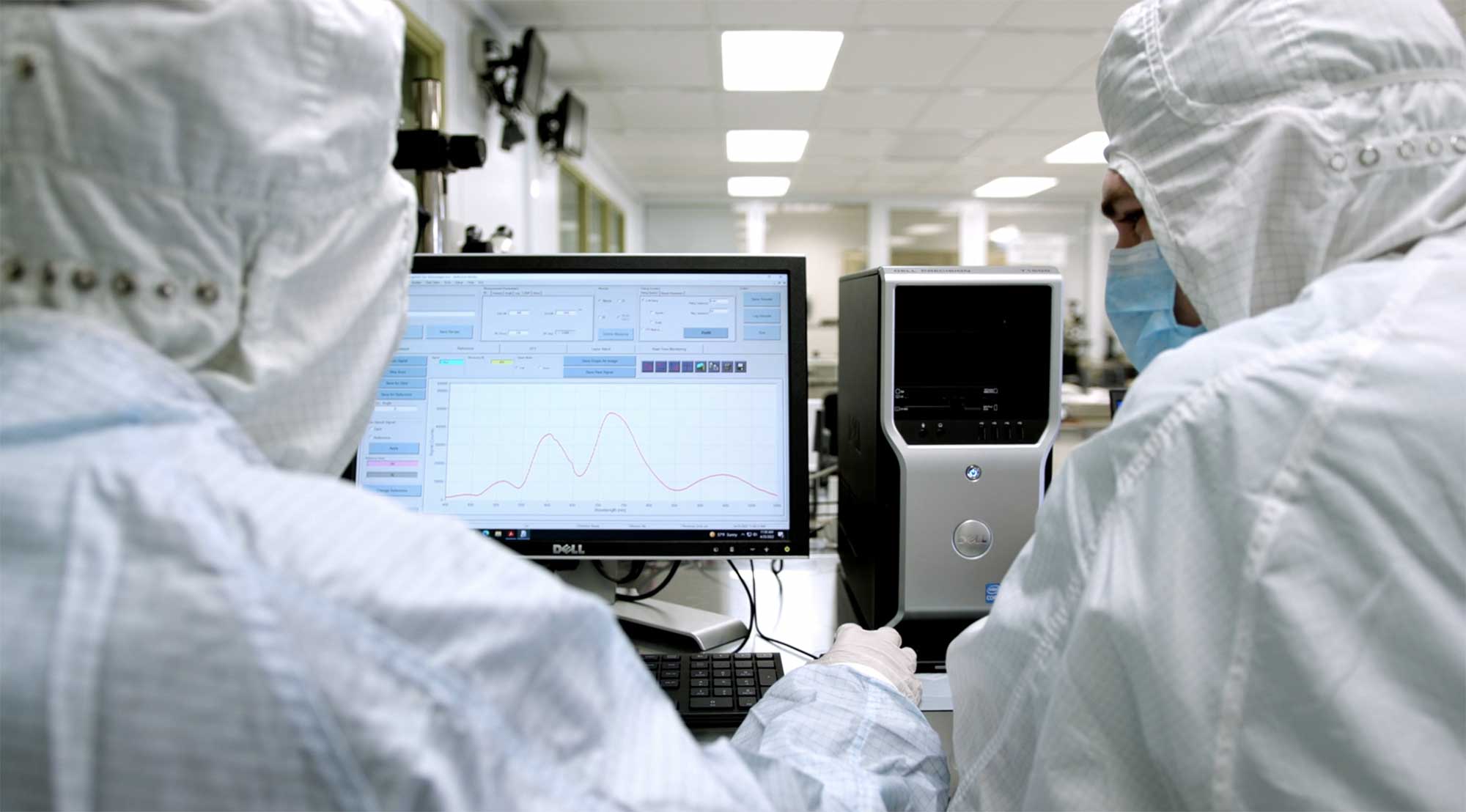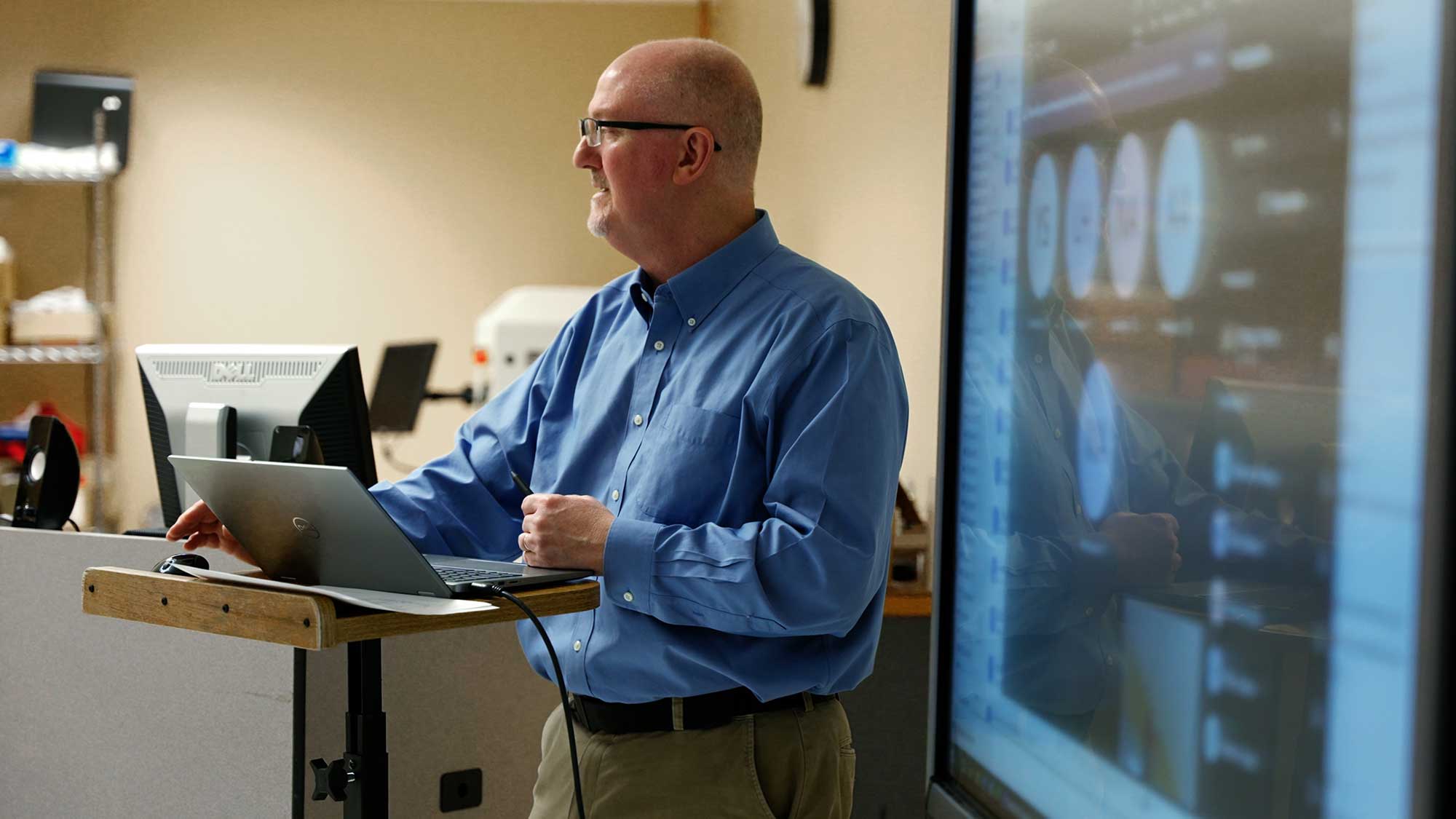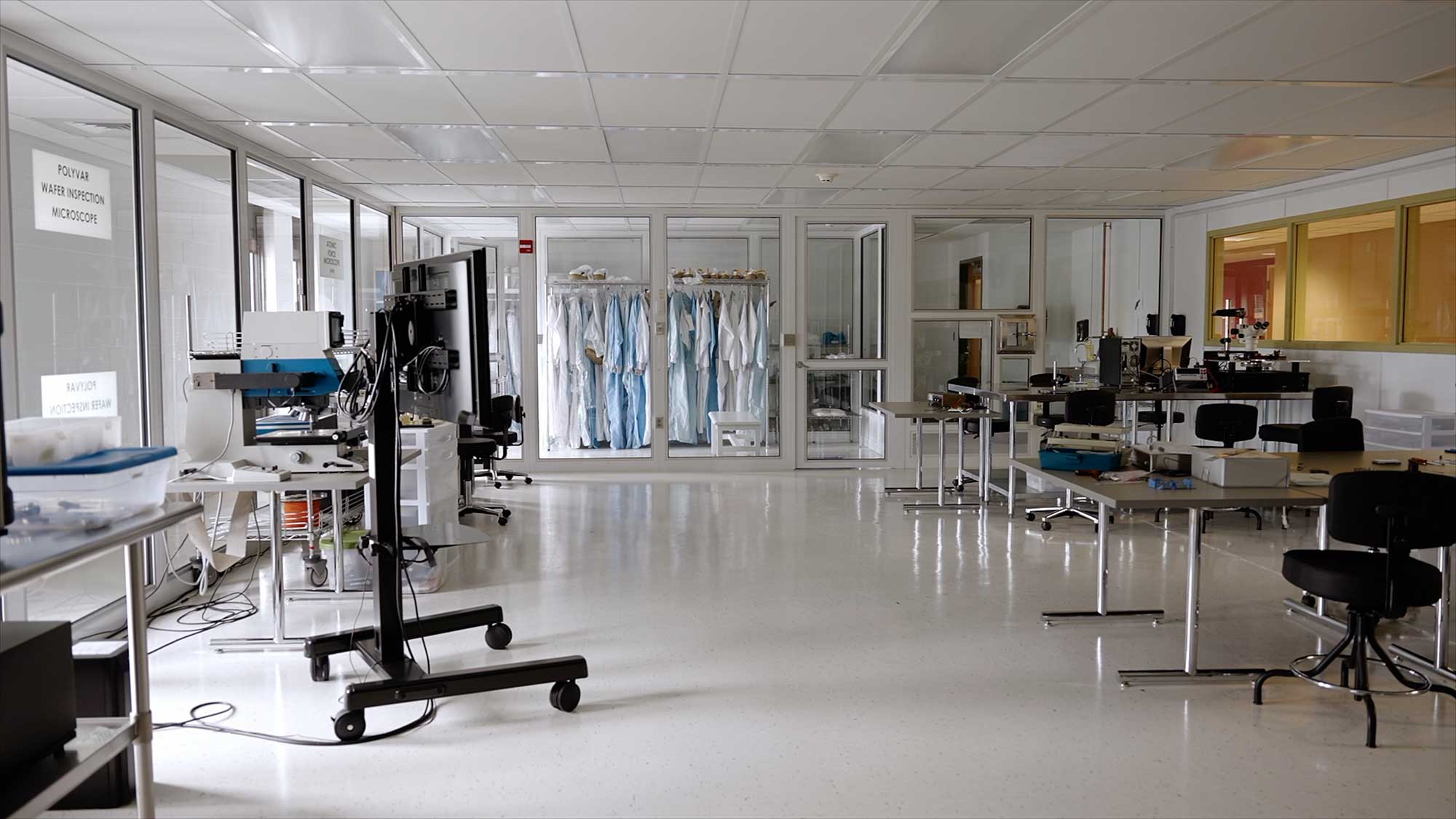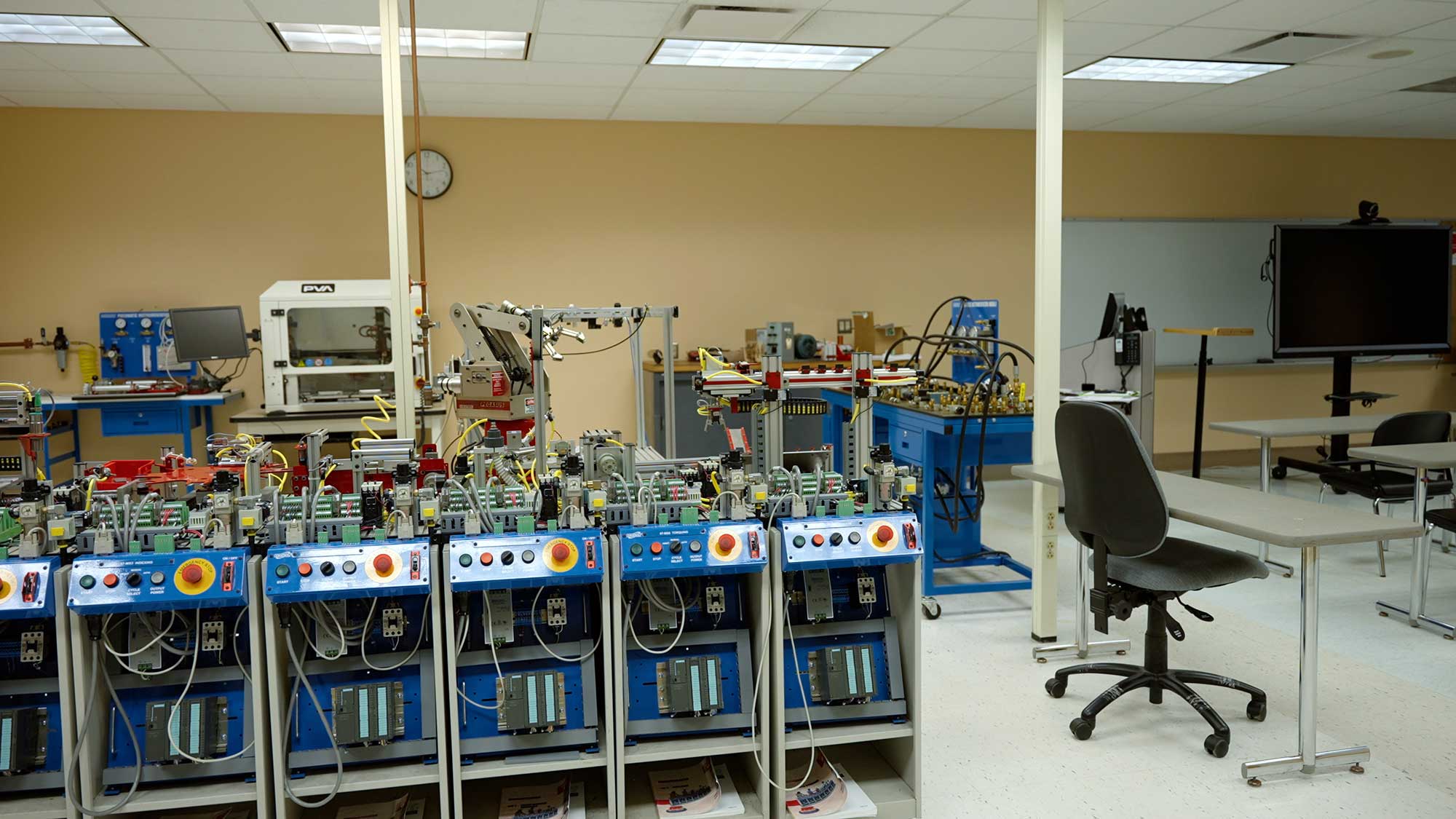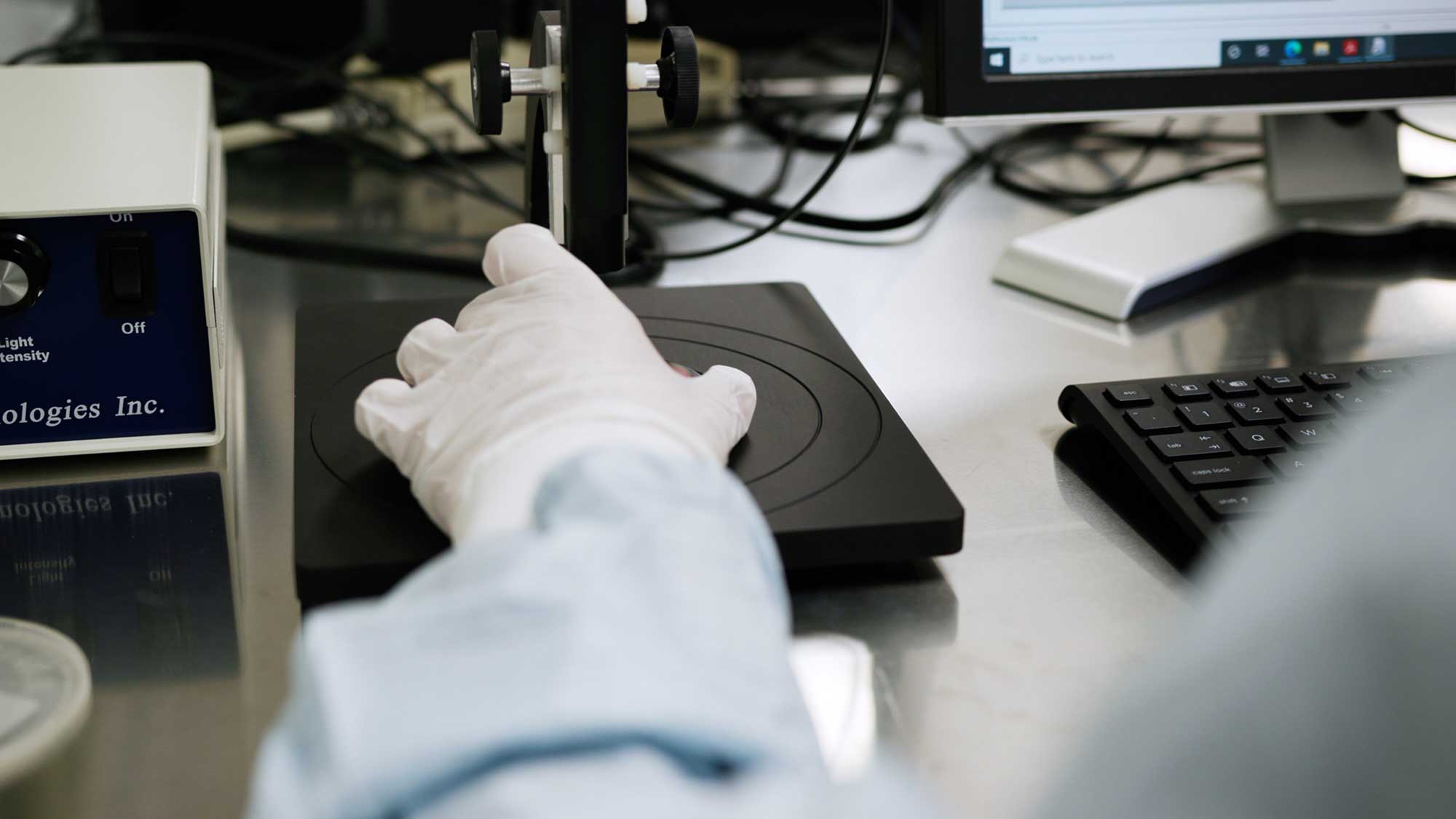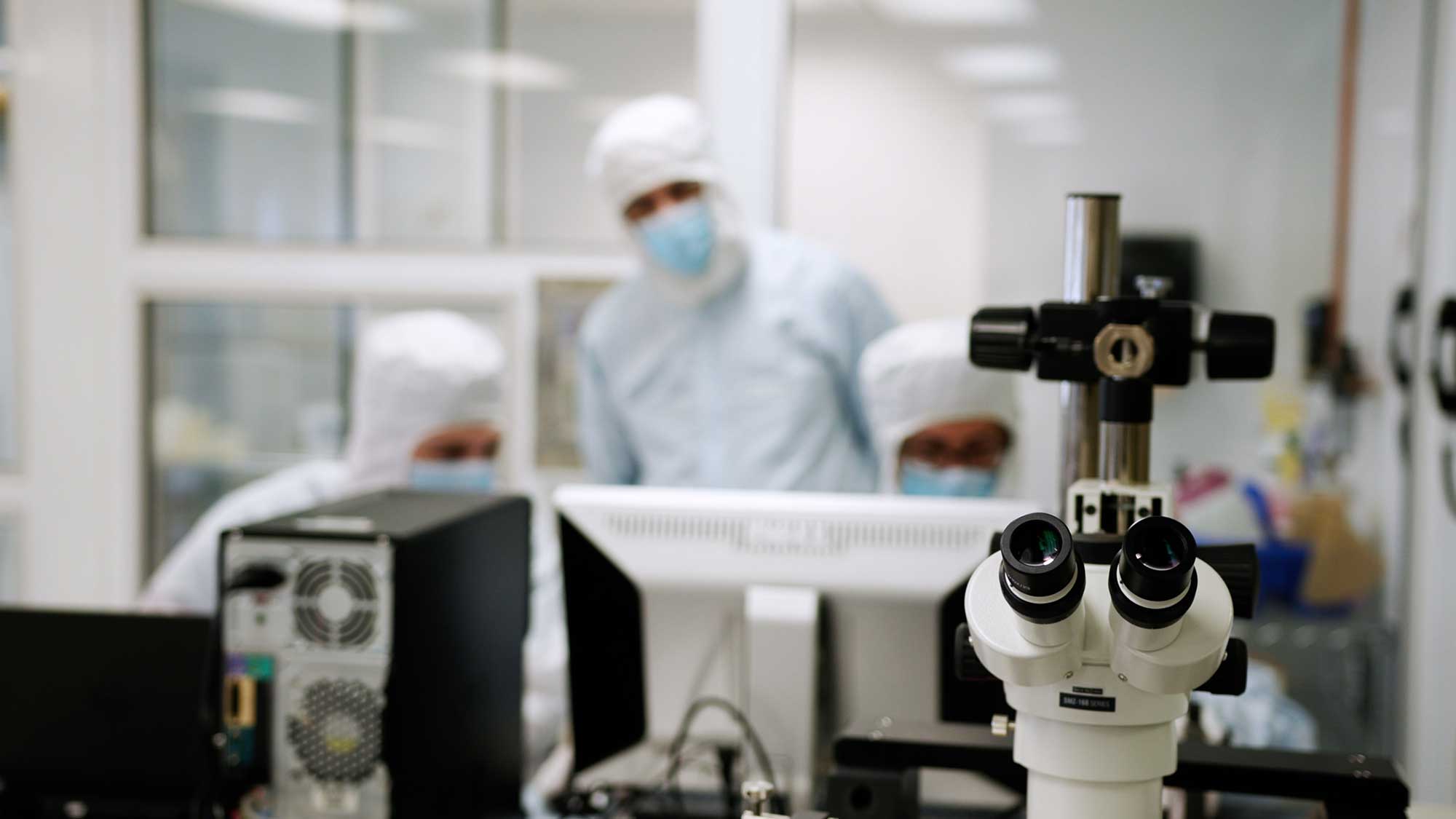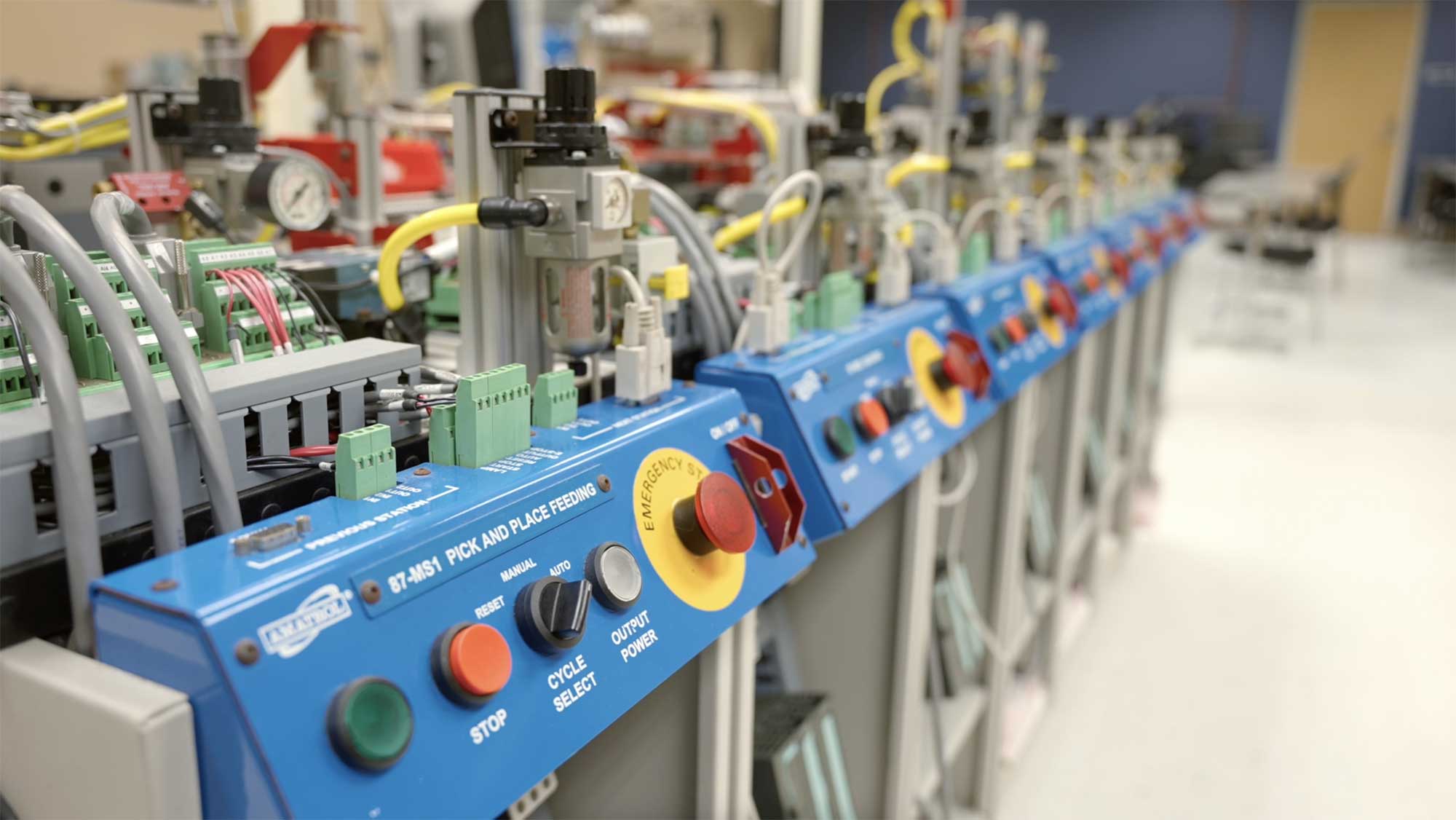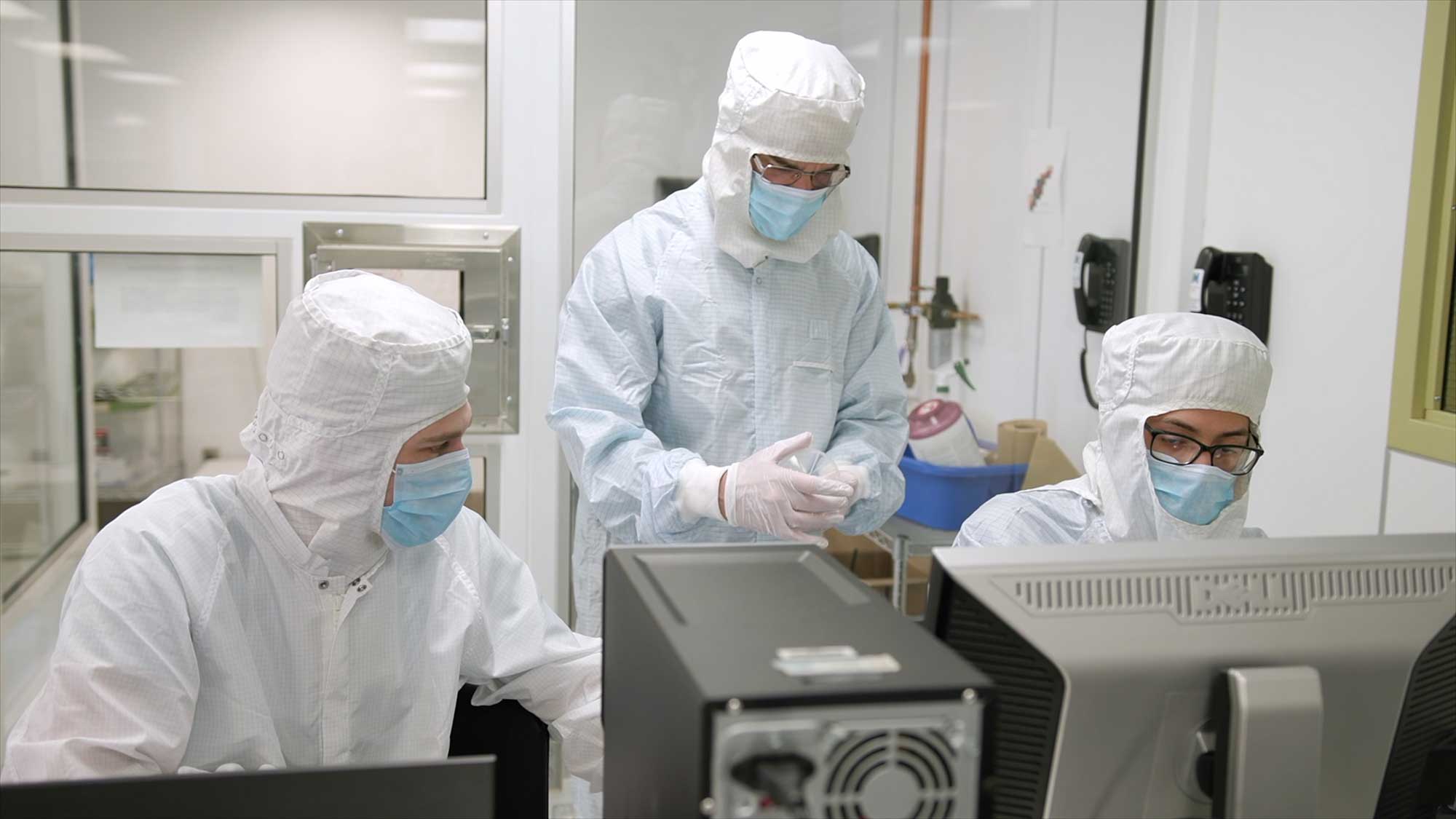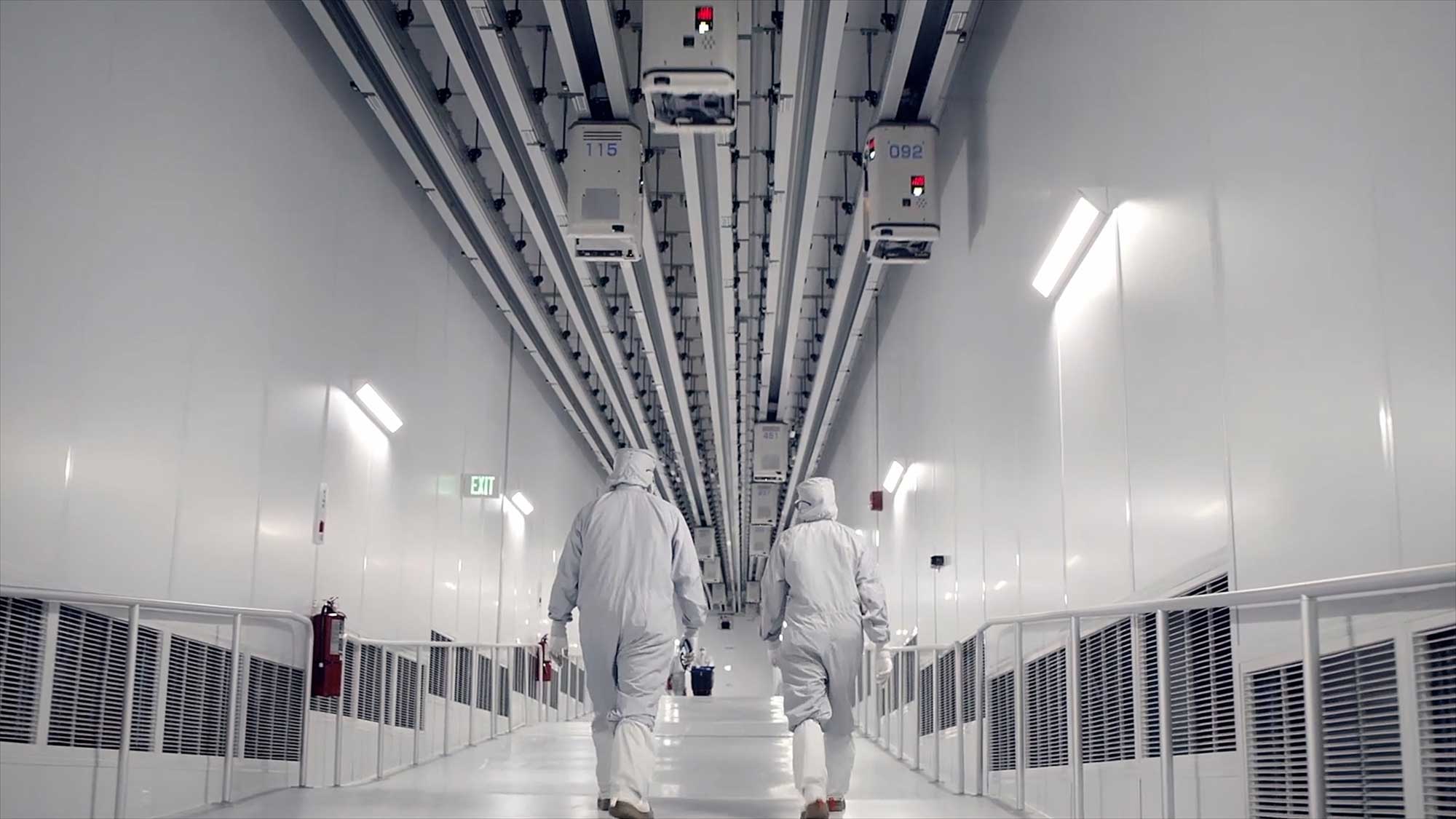Why study Robotics & Systems Technology AAS at FMCC
If you have an interest in electricity, electronics, and computers, this program is a great fit for you. The Robotics & Systems Technology program introduces students to fundamental electronics, electronic circuit design, digital circuitry, and the circuit fabrication and testing process through a variety of lectures and laboratory experiments. The Robotics & Systems Technology program also directly matriculates to various four-year colleges, enabling students to pursue a Bachelor’s degree in Electrical Engineering Technology.
Request info for this program
Career Pathways
Our region boasts a wide variety of career opportunities with high paying salaries in the advanced manufacturing industry. The labor market and employer information are specifically presented for the Amsterdam, Gloversville, Capital District, and the Mohawk Valley regions. Salary information is based on estimates within the Capital District.
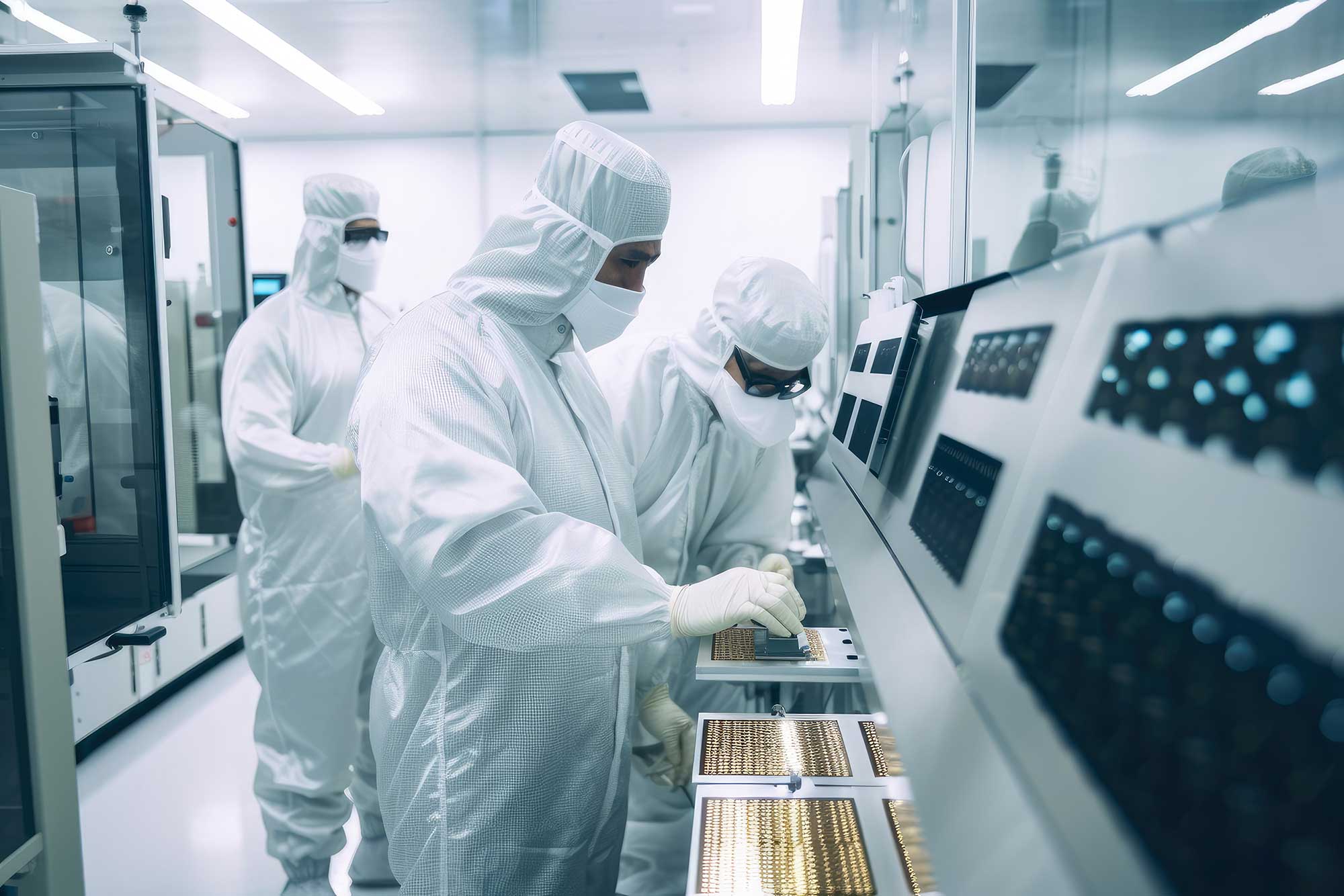
MEDIAN SALARY
$43,844*
SALARY RANGE $27,437 - $78,849
Perform any or all of the following functions in the manufacture of electronic semiconductors: load semiconductor material into furnace; saw formed ingots into segments; load individual segment into crystal growing chamber and monitor controls; locate crystal axis in ingot using x-ray equipment and saw ingots into wafers; and clean, polish, and load wafers into series of special purpose furnaces, chemical baths, and equipment used to form circuitry and change conductive properties. (bls.gov)
Nearly 500 expected jobs in the region in the next 10 years equating to a +23.7% growth rate.
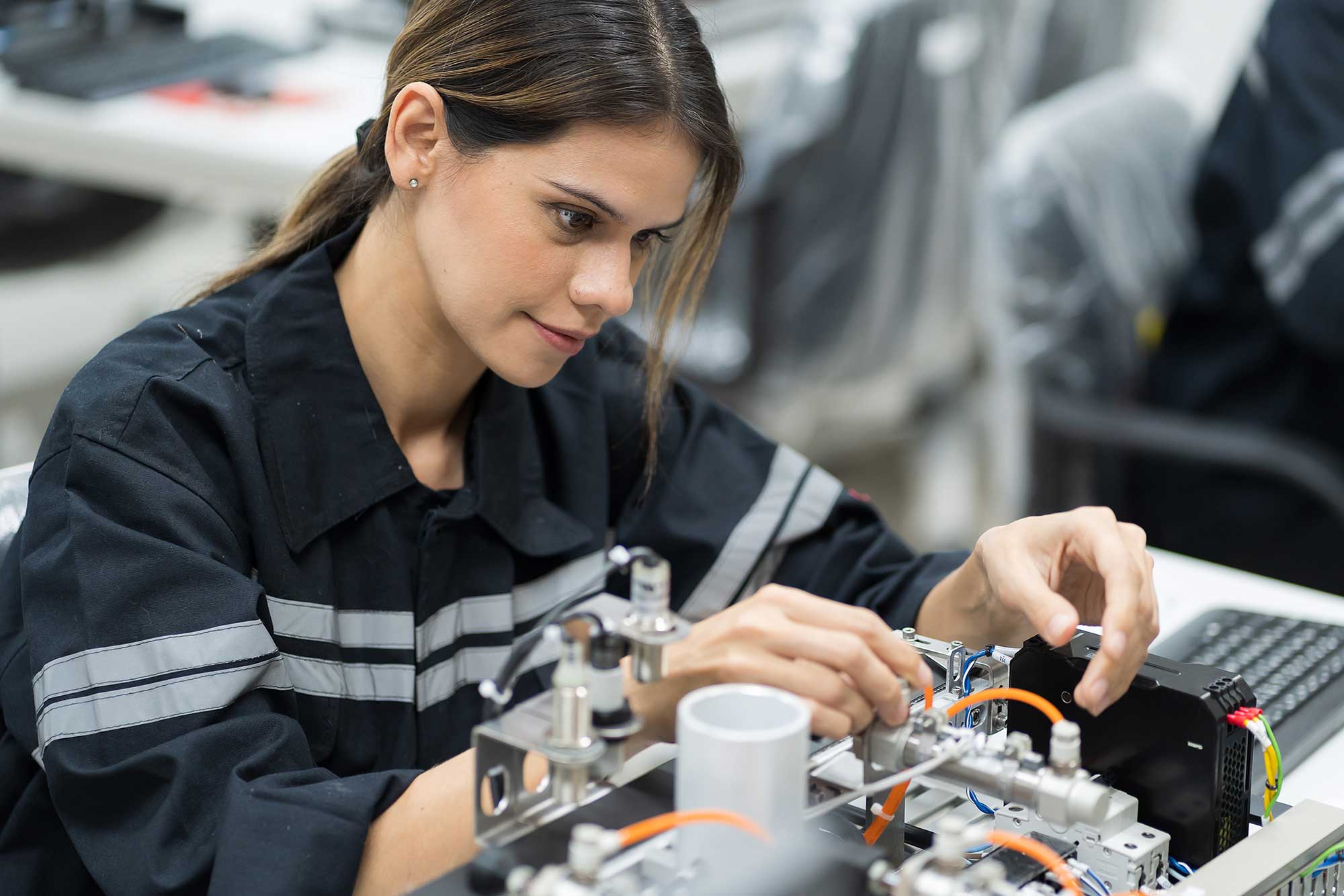
MEDIAN SALARY
$60,900*
SALARY RANGE $47,541 - $80,063
Apply electrical and electronic theory and related knowledge, usually under the direction of engineering staff, to design, build, repair, adjust, and modify electrical components, circuitry, controls, and machinery for subsequent evaluation and use by engineering staff in making engineering design decisions. (bls.gov)
Nearly 1,000 expected jobs in the region in the next 10 years.
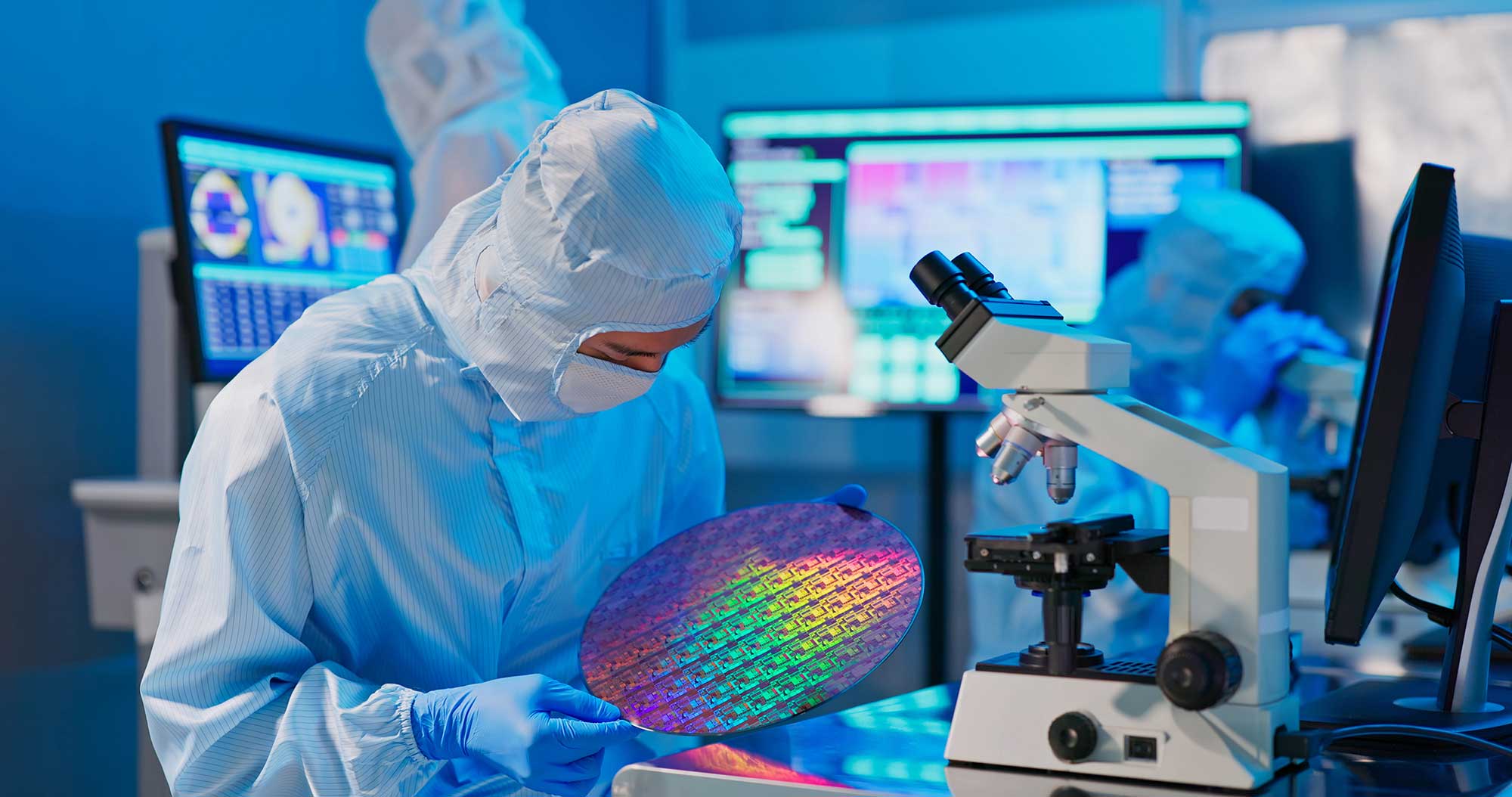
MEDIAN SALARY
$77,649*
SALARY RANGE $47,558 - $99,517
Nano Engineering Technologists implement production processes for nanoscale designs to produce or modify materials, devices, or systems of unique molecular or macromolecular composition. Operate advanced microscopy equipment to manipulate nanoscale objects. Work under the supervision of nanoengineering staff. (owlguru.com)
Over 400 expected jobs in the region in the next 10 years equating to a +17.6% growth rate.
Salary information presented are estimates and can be different for each individual based on education, experience, and the specific employer.
Labor market data is based on 2021 estimates derived from Lightcast (Career Coach | Lightcast)
Some of Our Regional Employers
Our commitment to your career path goes beyond the classroom with continued expansion of hands-on internships, job shadowing, and job placement opportunities with over 50 regional business and organization exclusive partners, a career network of over 200 regional companies and organizations; plus Annual Job Fairs every Spring semester.




Transfer Opportunities
Being part of the largest system of public higher education in the United States, the State University of New York, SUNY FMCC has established a multitude of transfer pathways for our students at both SUNY and Private schools. Below are some of our major transfer colleges and universities.
64 Credits
3
1,000 JOBS
Program Insight
Graduates of the Robotics & Systems Technology program have gone on to find lucrative careers in a variety of in-demand fields, such as semiconductor manufacturing, automation, robotics, and high-tech manufacturing. Many have continued their education pursuing a Bachelor’s degree in Electrical Engineering Technology.
Learning Outcomes
Students will be able to:
-
Apply concepts and techniques with hands-on skills in the areas of electricity, electronics, logic, industrial control circuits and automation, microprocessors, semiconductor fabrication, telecommunications, and computer simulations.
-
Conduct experiments and then analyze, interpret, and report results.
-
Demonstrate troubleshooting proficiency and the proper use of electrical diagnostic test instruments.
-
Demonstrate an ability to work independently and in teams.
Program Features
National Talent Hub
National Talent Hub is a state-of-the-art portal that uses advanced data analytics to connect jobseekers and those looking to improve skills in technical, STEM based jobs to employers and training programs that target their specific needs.
Mechatronics / Automation / Robotics Lab
We use our 7-segment Amatrol Mechatronics equipment in hands-on labs to learn about input and output devices, programmable controllers, mechanical devices, and pneumatics. More importantly, students understand the valuable skills in troubleshooting automation in a structured manner.
Electronics Lab
The lab includes power supplies, oscilloscopes, function generators and spectrum analyzers.
Semiconductor Simulated Clean Room
Provides students with a real-world experience in working in a clean room environment. This includes gowning up, working with a variety of clean room tools, performing measurements, and learning what it feels like to spend time gowned up in a clean room environment.
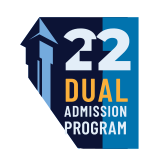
Dual Admissions Opportunities
Take advantage of the dual admissions opportunity and be accepted into Excelsior University’s Bachelors of Science degree in Electrical Engineering Technology while attending the Robotics & Systems Technology program at SUNY FMCC.
Program Gallery
Course Highlights
Course Catalog
SUNY FMCC offers its catalog online in a downloadable PDF document that makes information on programs, courses and policies most current and accessible, while reducing impact on the environment. Additional information is available on the College’s website and portal. To read and search the FMCC Catalog, you’ll need Adobe Reader version 7.0 or later.
2025-2026 FMCC CATALOGProgram Course Layout
The Robotics & Systems Technology program is designed to provide hands-on competence in electricity, electronics, digital electronics, industrial electronics, microprocessors, fiber optics, semiconductor fabrication, telecommunications, and computer aided design. Here are just a few examples of the courses you will take.
Students build on ELT131’s study of sensors and actuators by studying the theory, programming, and operation of devices and systems that are used in industrial controls, including closed loop control, PID control, PLC’s using ladder logic, robotics, HMI’s, and SCADA systems. They become familiar with and are able to troubleshoot and repair systems containing various motor types including DC and AC motor controls, servo systems, and coordinated motion control systems.
This course introduces nanotechnology concepts and characteristics of structures at the nanoscale. The course describes the fabrication process that is involved in producing integrated circuits and semiconductor devices. Various analytical instruments, such as scanning electron microscopes (SEM) and atomic force microscopes (AFM), are used to analyze micro and nano-sized structures.
This course provides an understanding of microcontroller computer architecture. Students learn the hardware and programming details of a microcontroller system, using industry recognized development systems. Topics include microcontroller system organization, registers, memory, addressing, machine language programming, interrupts and interfacing. Additional topics include memory technologies, memory system interfacing and programmable logic devices (PLDs).






